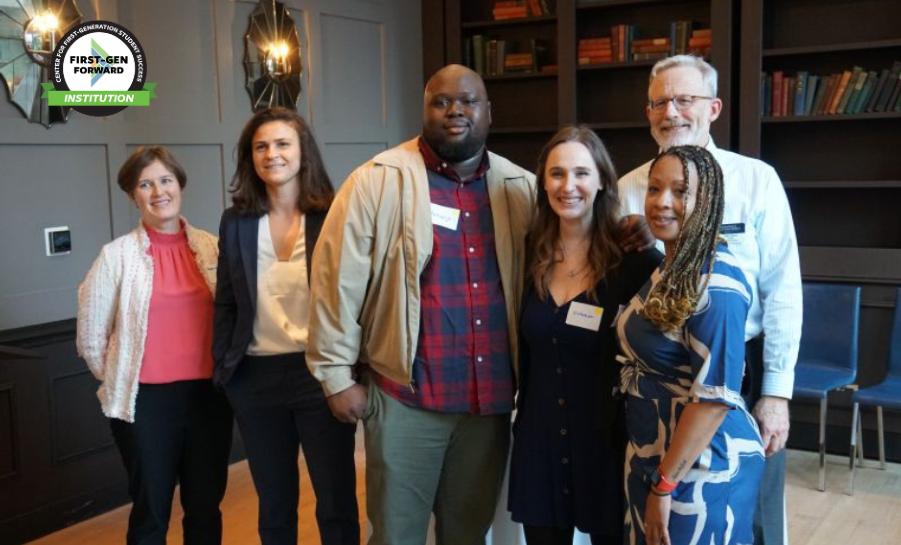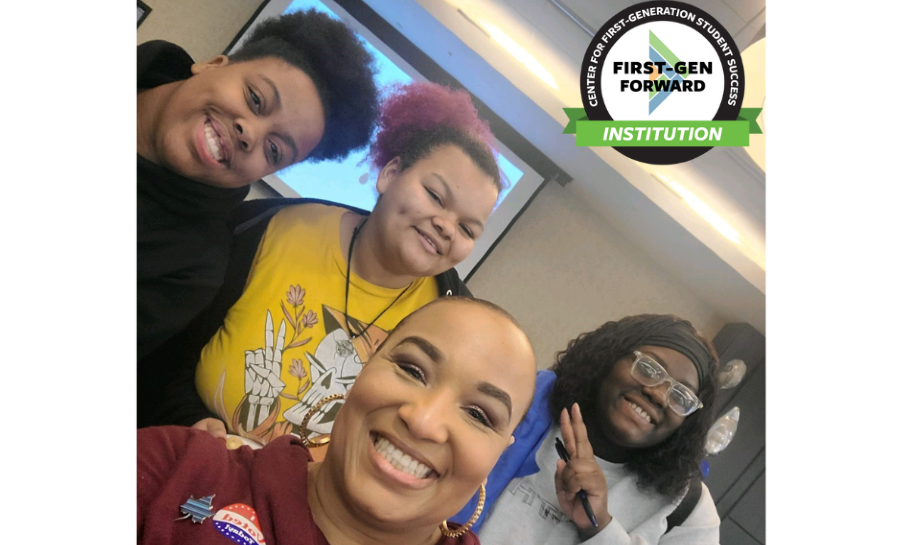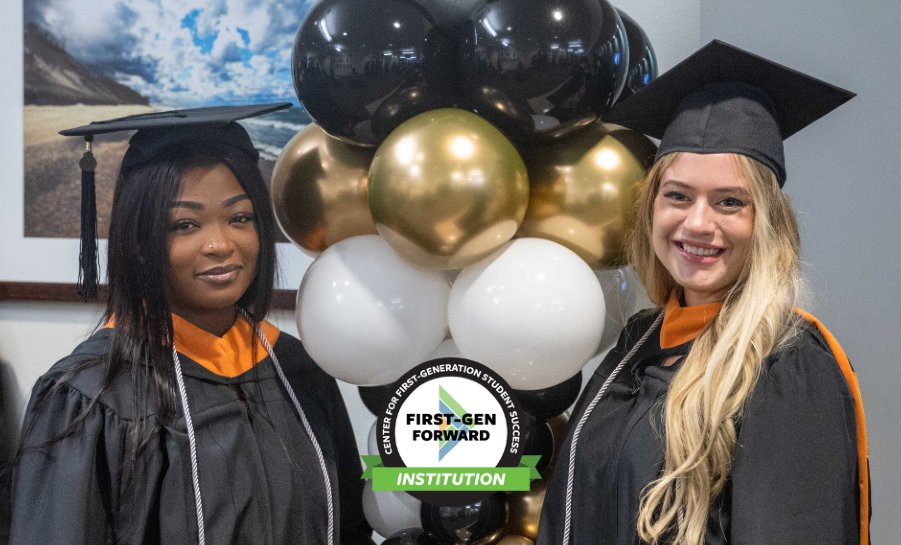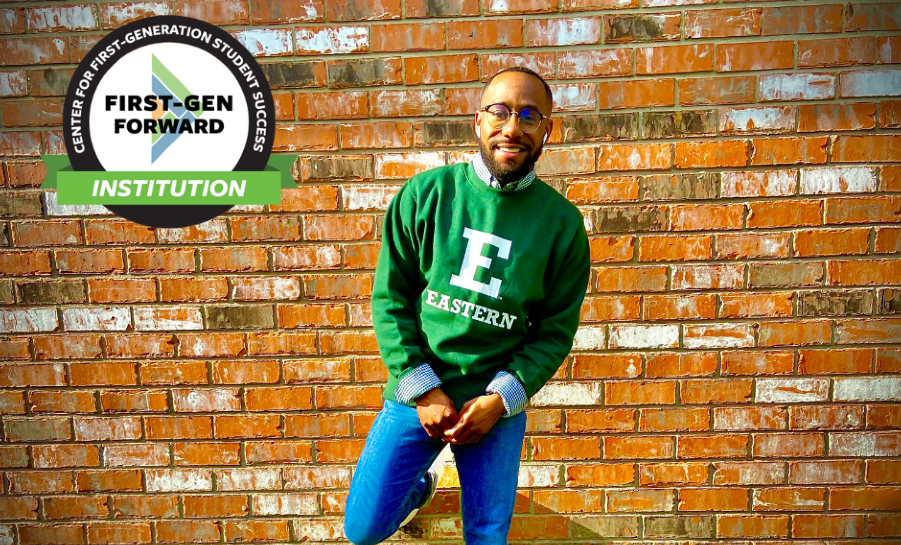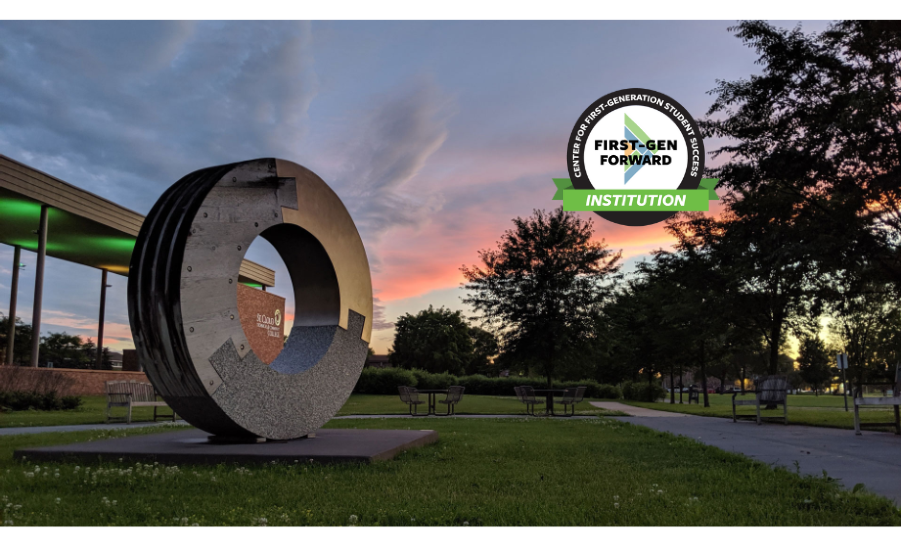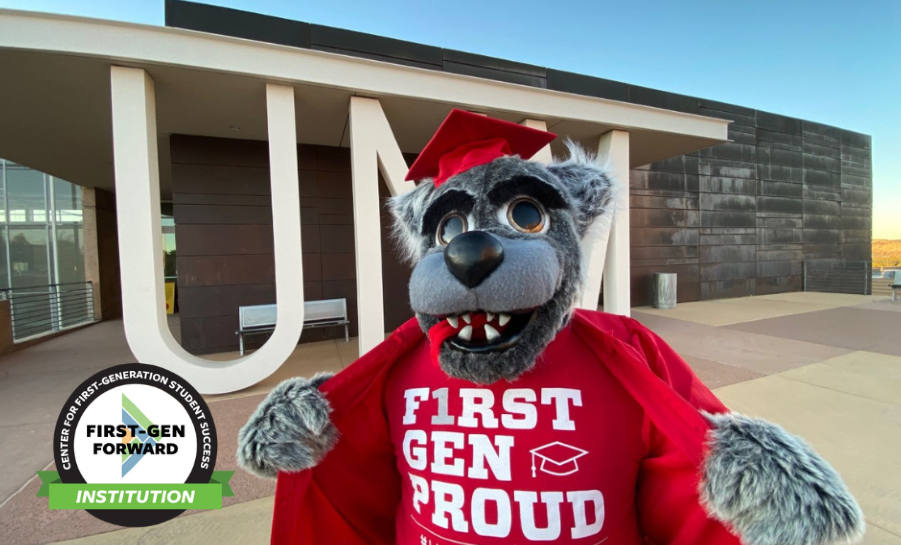Are we centering first-gen college students in how we orient our students to our campuses?
Terry Hill, University of Washington Bothell / FirstGen Forward / February 22, 2023
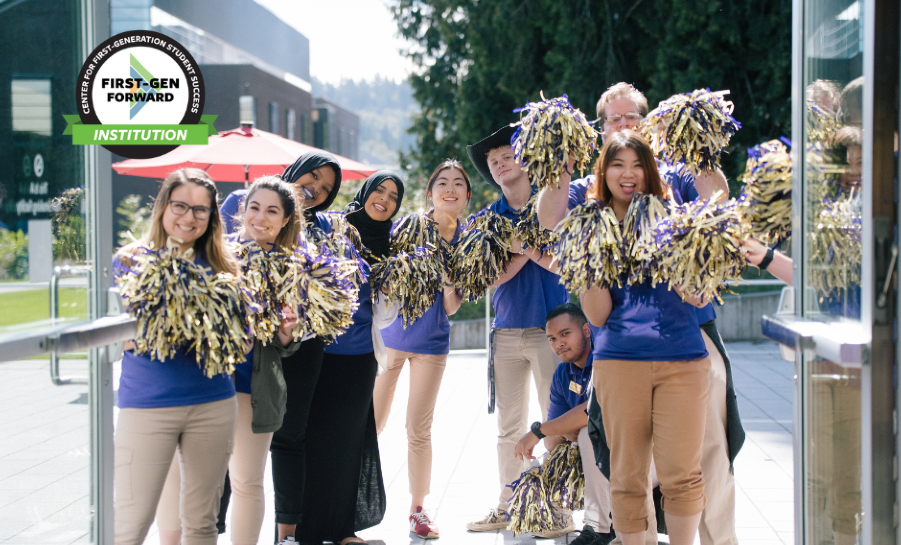
College orientation programs are an essential part of the college experience. They are designed to help new students adjust to college life, navigate campus resources, and connect with other students, staff, and faculty. For first-generation college students, orientation programs can be particularly valuable. For many students, they may be unfamiliar with the college environment and may need extra support to navigate the challenges of college life. It’s also easy to chalk that nervousness and confusion up to being evidence that you don’t belong, when the reality is transitioning to college can be overwhelming to any student.
Stephanie Mardahl runs orientation at the University of Washington Bothell and got into this work because of her orientation experience as a first-generation college student. "As a first-gen student, orientation was perhaps one of the most terrifying things I could think of. Would everyone know more than me? Was everyone else nervous? Was it just me? What is an academic advisor? Where in the world do I go to ask about my financial aid? These were all questions I had that clouded my brain. Orientation slowly made all those questions dissolve and made my headspace a little more clear going into my first day of classes." She goes on to say, “As an orientation professional, I get the chance to change the outlook of first-gen students that come to our campus. By making sure to use inclusive language and programming, we can ease the transition and increase their sense of belonging."
First-generation college students face unique challenges when transitioning to college and bring lots of resiliency and motivation. They may come from families that lack experience with college education, so they may not know how to access campus resources or how to advocate for themselves within a system that is unknown to them. They may also face financial barriers or have limited knowledge or access to academic resources, making it more difficult to succeed in college when you are not able to use or find every tool in the toolbox that the university provides. This is to not fault of their own. The higher education system is unlike the education system they have familiarity with. So, what can we do to change the system so that it accounts for this?
By making sure to use inclusive language and programming, we can ease the transition and increase their sense of belonging.
Take a universal design approach. Orientation programs for first-generation college students can help address these challenges but can also be othering or might feed into the imposter syndrome that can come with being first generation. Orientation programs could benefit from taking a universal design approach that centers the experience of first gen and other marginalized populations. By doing this, we are tailoring the programs to meet the needs of first-generation students and providing them with the information and resources they need to succeed in college in a way that helps build student confidence.
Hire first-gen peer leaders. One approach to do building an Orientation program that centers first gen students is making sure that your program is hiring a strong representation of first-generation college students as Orientation Leaders who can also share their lived experience and success stories. It’s important to amplify these student voices so that incoming students can see current students like them.
Be explicit. Other examples of things that can be done are making sure that all your presentation and materials avoid using acronyms unless you define them. Also, programs should not assume that students know things such as, what is a credit, what is a major, what is a general ed requirement, or what an academic adviser does.
Amplify support services. We also need to keep in mind the barriers that are often associated with first gen students, such as financial barriers. Are all our programs financially accessible? Are our programs adequately helping students to understand the financial aid and scholarship process and opportunities? We also need to keep in mind that many first gen students that are experiencing imposter syndrome are also less likely to seek out academic support resources like tutoring, mentoring, and advising, because of the fear that this may confirm that they are not cut out for college. Some questions to consider as you design ways for students to navigate student support services:
• How are we mitigating this by normalizing the experience of using these resources?
• Are we using student stories and sharing the reasons why these services are important?
• Are we having students interact with these areas in a positive comfortable way at Orientation?
Sometimes this can also resemble a game night in the tutoring center where the students can step in the spaces without feeling the pressure of an academic struggle. Once they feel comfortable in the space and with the staff, they are more likely to feel more comfortable seeking out that resource when they need it.
Engage students. In addition, some colleges offer workshops and seminars on topics like time management, study skills, and how to access campus resources. These programs are designed to help college students develop the skills they need to succeed academically and professionally. Think about ways to incentivize participation in these kinds of events with door prizes. It’s important to make participation fun and something all students might want to do. Making sure we normalize the struggle of being a college student in general also helps mitigate the feelings some first gen students might feel as they start collecting confirmations in their mind on why they don’t belong.
Build community. Orientation programs can also help first-generation college students connect with other students and build a sense of community. These programs often include social activities and networking opportunities, which can help first-generation college students feel more connected to their peers and more comfortable in the college environment. All students benefit from social integration but it’s very important for student populations that might feel like a stranger in a strange land.
In conclusion, orientation programs are an important resource for first-generation college students. These programs provide valuable information and resources that can help first-generation students navigate the challenges of college life. By tailoring orientation programs to meet the unique needs of first-generation college students, colleges can help these students succeed academically and professionally and make the most of their college experience. A universal design approach also helps all students, if it centers the populations that are often most marginalized by systemic barriers. As we enter Orientation season, it’s critical that we center first generation college students in all our events and programs that make up the orientation process. If you haven’t already, take the time to reach out to your campus orientation team to see how you can partner with them to better serve the first-generation college students on your campus.
